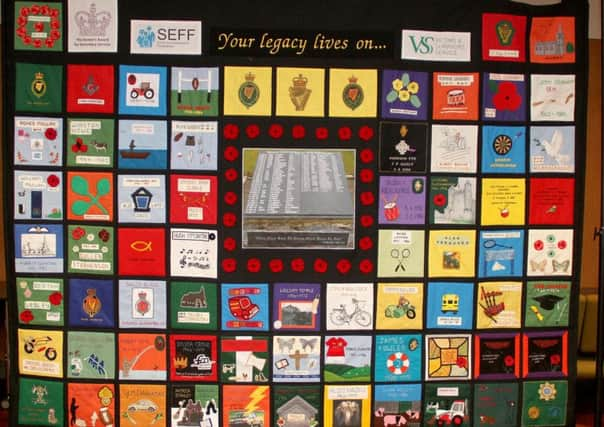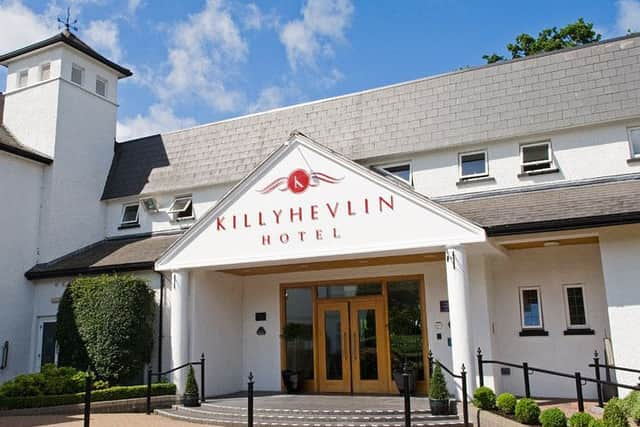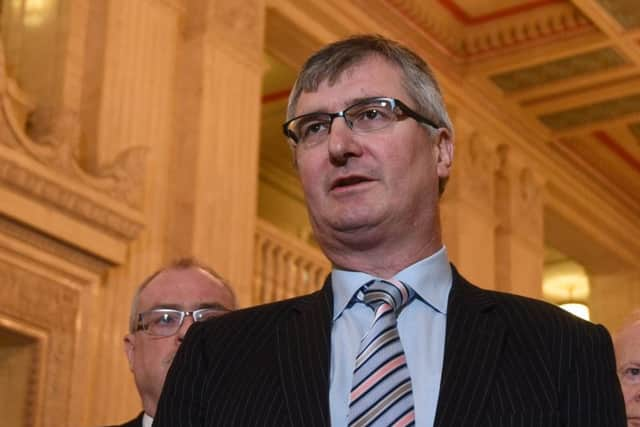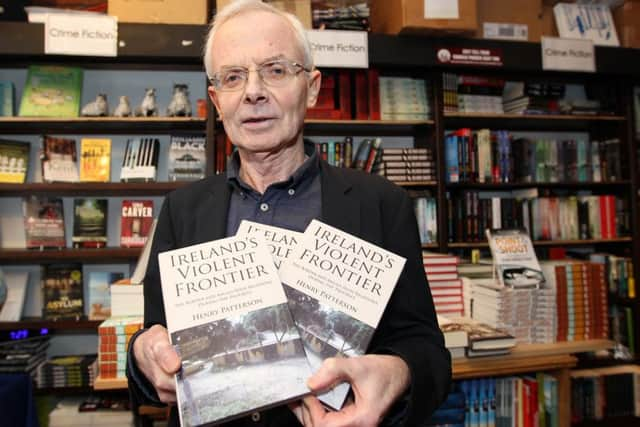Anger and pain at Fermanagh legacy event, as well as cynicism towards proposed HIU


The meeting was organised by the South East Fermanagh Foundation which exists to help victims and survivors of IRA violence in this border region, devastated by terrorism during the Troubles.
The two representatives of the NIO provided a clear overview of the main institutions proposed to deal with legacy issues.
Advertisement
Hide AdAdvertisement
Hide AdYoung, bright (I taught one of them) and sympathetic to the often horrendous stories of members of the audience, they were nevertheless met with a response which ranged from the angry through the cutting to the simply incredulous.


When someone raised the issue of why the words ‘terrorism’ or ‘terrorist’ did not appear in the document, it was pointed out that, in fact, in her foreword the Secretary of State, Karen Bradley, writes ‘A Conservative government will reject any attempts to rewrite the history of the past that seeks to justify or legitimise republican or loyalist terrorism or which seeks to displace responsibility who perpetrated acts of terrorism.’
Many in the audience clearly believed that this was little more than a fig leaf which did not conceal the reality that the structures proposed would, they feared, end up focussing above all on the alleged misconduct or criminal acts of members of the armed forces and police.
The NIO defence was that the present system was making things worse for victims and survivors and that the current proposals had been agreed by the main political parties.
Advertisement
Hide AdAdvertisement
Hide AdThis brought an angry response from the former UUP leader, Tom Elliott, and the claim was then amended to one where the parties had been consulted.


According to one of the NIO representatives the aim of the present process is to ‘build support for the institutions and build trust’.
But in the conference room at the Killyhevlin Hotel it was clear that the talk of trust and the cool and measured detailing of the proposals — at times like a lawyer setting out the terms of a complex commercial contract — came from a parallel universe to that inhabited by the audience, one of loss, pain, anger and bitter and cynical distrust of all official discourse.
But there was more to this total rejection of the NIO proposals than anger and emotion.
Advertisement
Hide AdAdvertisement
Hide AdIt was often based on bitter experience and many of the people in the room have had a long involvement on legacy issues and the view was expressed that many of the completed reports by the now defunct Historical Enquiries Team (HET} were flimsy and unsatisfactory.


One key issue of contention was the proposed Historical Investigations Unit (HIU).
Many in the audience feared that it would continue the present process where inquiries, inquests, and ombudsman reports have focused on the state, in large part because the state kept files and paramilitary organisations did not.
The response was that state archives contain ‘million’ of documents dealing with republican and loyalist paramilitaries and that this would ensure that the HIU investigations were balanced and proportionate.
Advertisement
Hide AdAdvertisement
Hide AdThe problem with this argument is that these files were also available to the HET and of the 1,615 completed cases involving 2000 deaths less than ten prosecutions of loyalist and republican paramilitaries have resulted.
Many of the files will concern intelligence reports and as the history of the Troubles amply demonstrated intelligence is not evidence that will justify a prosecution.
In contrast the HIU will take over 400 cases from the Historical Investigations Division of the Police Ombudsman’s Office. Here what is being investigated is possible evidence of ‘non-criminal police misconduct’.
The vagueness and potential scope of this terminology, like the associated one of ‘collusion’, clearly leaves open the prospect of a clear skewing of HIU investigations towards state actors.
Advertisement
Hide AdAdvertisement
Hide AdAs far as I could tell there was no representative from the largest unionist party at the meeting although there may well have been DUP members in attendance.
One of the big question marks that hung over the meeting was the degree to which the NIO was correct in implying that these proposals have the support of both of the largest parties in Northern Ireland.
It is certainly true that Sir Jeffery Donaldson has expressed hope that the HIU will bring justice to at least some of the victims of terrorism .
There were not many takers for that proposition last Monday evening.
• Henry Patterson is emeritus professor of Politics at the University of Ulster